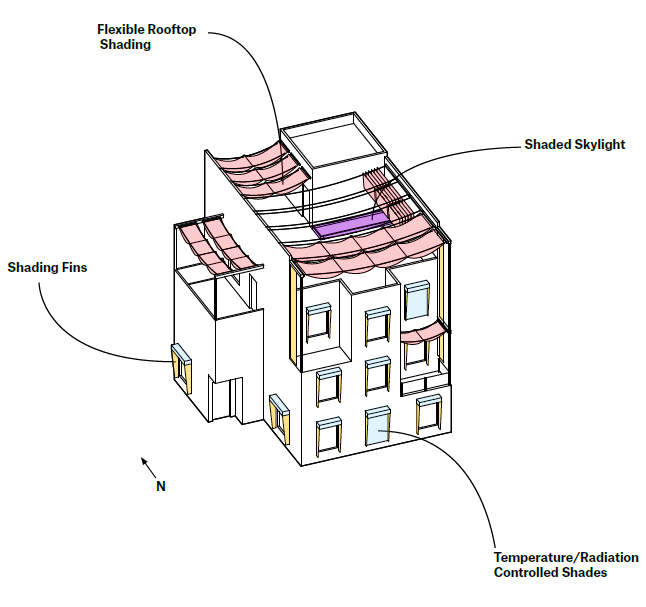Principal Investigator:
Leslie Norford, Professor of Building Technology, Department of Architecture
Location:
Kuwait
These events are increasingly common and are made more severe by a combination of regional climate change and the urban heat island effect. The research sought to assess the performance of base-case buildings and urban form under current and mid-century-projected heat waves; determine the technical effectiveness and cost of single measures intended to mitigate the impact of urban heat waves; and ascertain the impact of integrated approaches (urban form, building and urban technologies, inhabitant behavior), with particular attention to heat-vulnerable populations.
Key outcomes included the development and implementation of two simulation workflows, one for building energy performance and another for optimizing HVAC equipment scheduling and the compilation of results from detailed building-performance simulations An evidence-based urban and architectural design manual was also produced to facilitate future applications of the research.
Principal Investigator:
Leslie Norford, Professor of Building Technology, Department of Architecture
Location:
Kuwait
